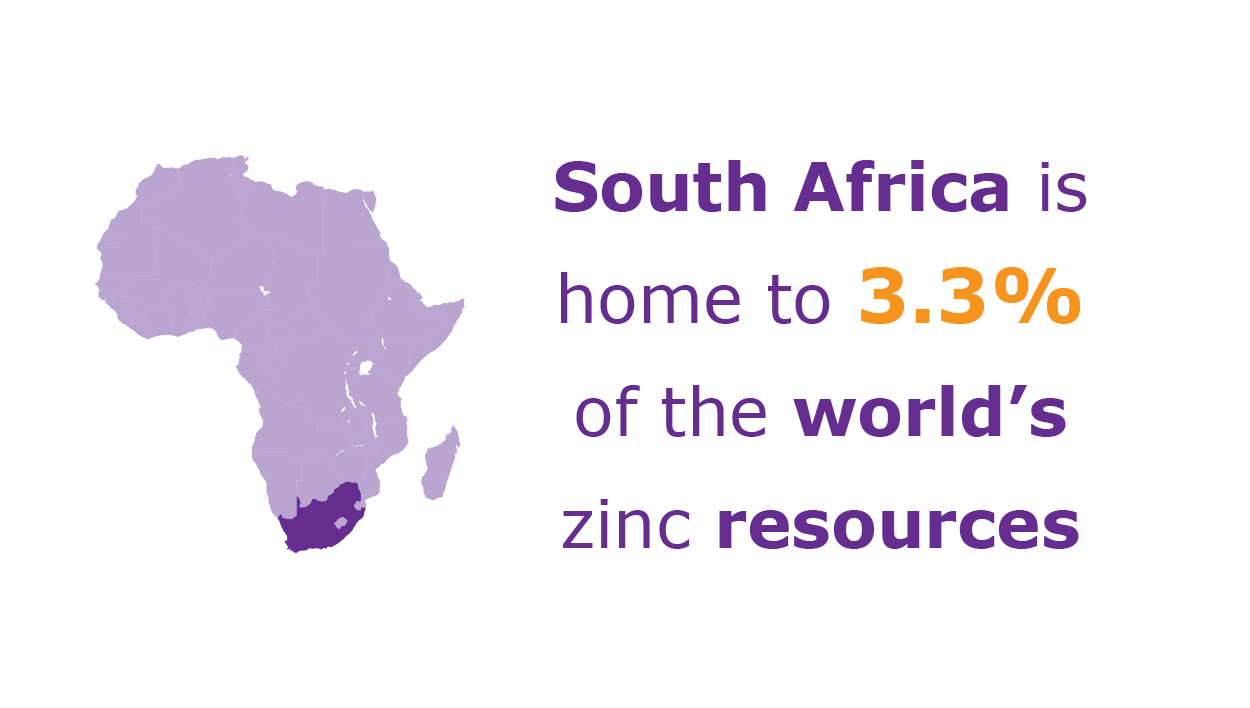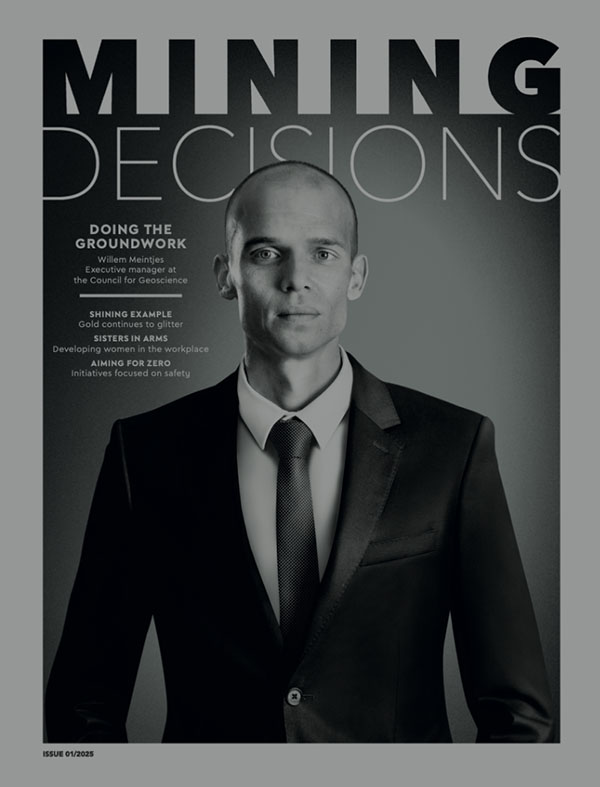‘Africa’s mining sector is in crisis. At its root is a lack of trust between mining companies, governments and, indeed, the very nations they lead. A failure to tackle this crisis will result in serious, adverse implications for both economic growth and employment prospects at the moment when the continent’s needs are rapidly increasing,’ states the recently published Zambezi Protocol.
In the highly competitive environment left in the wake of the global economic crisis, and the subsequent downturn in economic growth, ‘governance and policy attractiveness will become increasingly important differentiators in the performance of African countries’, states the protocol. ‘Just as important will be the state of health of the critical regulatory and administrative processes needed to ensure decent and diversified growth.’
Indeed, a prolonged period of regulatory uncertainty continues to hinder the South African mining industry and it has had a negative impact on investment and growth in the sector over recent years. One of the main reasons for this is the delay in finalising key regulatory instruments, including the Mineral and Petroleum Resources Development Amendment Bill of 2013, which aims to amend the Mineral and Petroleum Resources Development Act, No 28 of 2002.
Although the bill was approved by the parliamentary portfolio committee on mineral resources and the National Council of Provinces in March 2014, and by the national Parliament in April 2014, President Jacob Zuma returned it to Parliament due to concerns regarding the constitutionality of various provisions, as well as the possibility that its implementation may contravene several bilateral trade agreements.
Peter Leon, a partner and co-chair of international law firm Herbert Smith Freehills’ Africa practice, says there are both procedural and substantive issues as far as the amendment bill is concerned. He pegs the provisions around beneficiation and export licences as some of the more pertinent concerns. ‘These would require mining companies to effectively obtain the minister’s written permission before exporting.
‘In my view that is an unconstitutional export licence. So the parliamentary committee has agreed to obtain an independent legal opinion on this issue. If this issue isn’t addressed properly it may lead to a violation of the general agreement on trade and tariffs [GATT].’
‘The bill abolishes all time limits for making decisions and leaves that for regulation. This is against international best practice’
Leon highlights numerous other issues of concern, some of which he says go against international best practice and which – while they are constitutional – simply do not bode well for the industry. These include the way in which licensing applications will be handled, the abolition of time limits, and the lack of an online electronic mining cadastre portal.
He says: ‘If the bill is passed, you’ll have a quasi-auction system. So if you’re the first in line with an application for a right and meet all the requirements under the act, the Department of Mineral Resources is obliged to grant you that right.
‘What’s on the bill is a very unhappy mix of the two systems – an auction system for rights, with the department assessing whether or not you’re the right person to get that right. This can cause all sorts of problems and make the system more opaque and corrupt.
‘I feel strongly that this should be reconsidered. Also, the bill abolishes all time limits for making decisions and leaves that for regulation. This is against international best practice. The best mining codes in the world always have time limits on them for the making of decisions. Not having this in the act is very problematic,’ says Leon.
Cliffe Dekker Hofmeyr corporate and commercial director Allan Reid says there are numerous provisions of the bill which, if it is passed in its current form, will have a ‘profound effect’ on the mining industry. For Reid, problematic provisions include those pertaining to the processing of applications; changes in the shareholding of companies; beneficiation; environmental provisions; the extension of prospecting and mining right areas; ministerial discretion; and regulations.
Commenting on the matter of beneficiation, Reid holds a similar viewpoint to Leon, arguing that the bill, in its current form, is unconstitutional in that it could potentially restrict the quantitative supply of minerals to the international export market and, in so doing, breach South Africa’s obligations under the GATT. ‘This is commonly cited as one of the main reasons why President Zuma sent the bill back to the National Assembly,’ he says.
Reid adds that the discretion granted to the minister to declare a mineral as strategic, is likely to have one of the biggest impacts, given that the minister may declare any mineral as strategic. ‘In this event, the minister is empowered to determine what volumes of such mineral are to be available to be sold locally. The minister also has the discretion to amend the provisions of the 2010 Mining Charter, including any amendments thereto, and attached scorecard, which could potentially significantly impact the industry in future,’ says Reid.
Wickus Botha, Africa mining and metals sector leader at EY, argues that the mining industry’s regulatory woes have not changed much over time. He cites some of these as equity ownership and representative participation, and diversity and inclusiveness targets.
When it comes to the amendment bill, Botha believes the bigger debate is around whether the ‘once empowered, always empowered’ principle is still valid. ‘The whole argument is that, if you’re going to lock somebody in, it’s not transfer of ownership,’ he says, adding that what is also important is that from an investment landscape aspect, attempts are not made to fix things retrospectively. This is because much of the legislation is focused on correcting the wrongs of the past or redressing previous injustices, and while this is a fair point it is becoming ‘like old bubblegum – starting to lose its flavour quickly’.
According to Botha: ‘It’s not necessarily achieving much and it’s not changing or creating opportunities for the youth. So I think what’s important for the legislation is that it’s balanced and not only focused on historical injustices. Fixing the remainder can only be fixed by looking forwards, not backwards.
‘For me this is the primary shift that needs to happen. Because a focus on the future will create policy that is pro-investment and that is focused on new mines and operations, and not on changing ownership, because this won’t create more supplier streams or capital expenditure or jobs, whereas a new mine will.’
For Botha, future focus should be on ensuring that not only mining policies but all policies pertaining to transportation and logistics, and suppliers of bulk infrastructure such as water and electricity, are appropriately developed and that the overall environment is made attractive to investment capital. ‘There’s a lot of potential for South African and African mining but then you need the right infrastructure and policies in place to best position yourself for that,’ he says.
Reid says that while regulatory certainty will indeed play an important role in stabilising the mining sector and securing the tenure of investors, a collective effort from all stakeholders is required, as is continued and effective discourse. He says South Africa’s mining industry is presently in ‘a turbulent state’, largely due to increases in costs, declines in productivity, significant commodity price decreases and difficult trading conditions, among a number of other concerns.
‘A prolonged period of legislative uncertainty, workers demanding higher wages, violent labour unrest and the South African energy crisis are all factors that have added to the issues and are negatively impacting investment and growth in the market,’ says Reid.
Botha points out that the situation isn’t unique to South Africa but is being experienced globally. ‘The entire world has had a bit of a tough time in the mining industry over the past two years because of weak commodity prices. I don’t think these will soften much more. The question is whether they will rebound and if so, how fast will they rebound, or whether they will continue for a while longer in this price band and then only later start to strengthen again. That’s where some of the uncertainty is.’
He adds that this is important because the price of commodities determines the expansion of the industry. ‘If you look at the internal factors, the reality is, in an economy that’s not growing fast, the demand for additional products is not going to be high. So therefore, any policy decisions around downstream beneficiation and local industries, for example, is going to be incredibly costly, unproductive and uneconomical because it doesn’t fit into the current economic landscape.’
As far as Leon is concerned, there is ‘very little in the bill that is going to promote investment in the mining industry, at a time when investment in the mining industry is very challenging’.
He also sees little likelihood that the bill will be passed this year. In summary, he says: ‘What you need is a certain and predictable regulatory environment under the rule of law; clear, predictable and accessible laws that limit administrative discretion as far as possible; fixed and efficient time frames for all licensing decisions; access to administrative and judicial review of licensing decisions; and security of tenure, affording the holders of prospecting rights the exclusive rights to prospect what they discover.’






